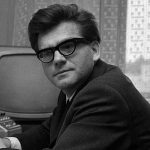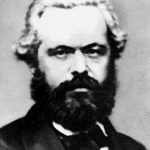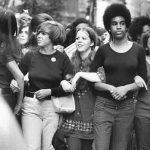Hegel’s Absolutes never were a series of ascending ivory towers. Revolutionary transformation is immanent in the very form of thought. Our age can best understand Hegel’s Absolute because it has been witness to a movement from practice.


Hegel’s Absolutes never were a series of ascending ivory towers. Revolutionary transformation is immanent in the very form of thought. Our age can best understand Hegel’s Absolute because it has been witness to a movement from practice.

Marking the publication of writings by Raya Dunayevskaya on Marx’s philosophy of revolution in permanence, the article presents parts of a lecture in which she gave an overview of this concept in relationship to her just-completed book, “Rosa Luxemburg, Women’s Liberation, and Marx’s Philosophy of Revolution.”

Olga Domanski delves into G.W.F. Hegel’s section on “Life” in his Science of Logic to show its meaning for the women’s movement today, facing lethal attacks on abortion rights and an alarming increase in rapes, battering, poverty and unemployment as well as an ever-widening gap between feminist theory and the lives of Black and working women.
To highlight the new online availability of the Raya Dunayevskaya Collection, we present excerpts of her 1985 Marxist-Humanist Perspectives, which take up the development of the Marxist-Humanist concept of Archives out of the category made of the totality of Marx’s Archives as a new beginning for today.

From the July-August 2014 issue of News & Letters
UNCHAINING THE DIALECTIC
Raya Dunayevskaya’s 1953 breakthrough on Hegel’s Absolute Idea enabled her to illuminate a path not traveled by previous generations of revolutionaries. She is quite emphatic in raising the importance of “Unchaining the Revolutionary Dialectic” (May-June 2014 N&L), and capturing what [=>]